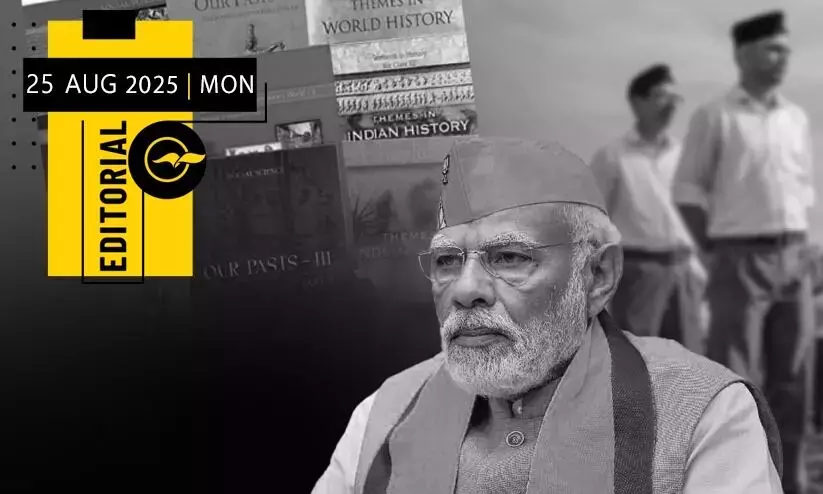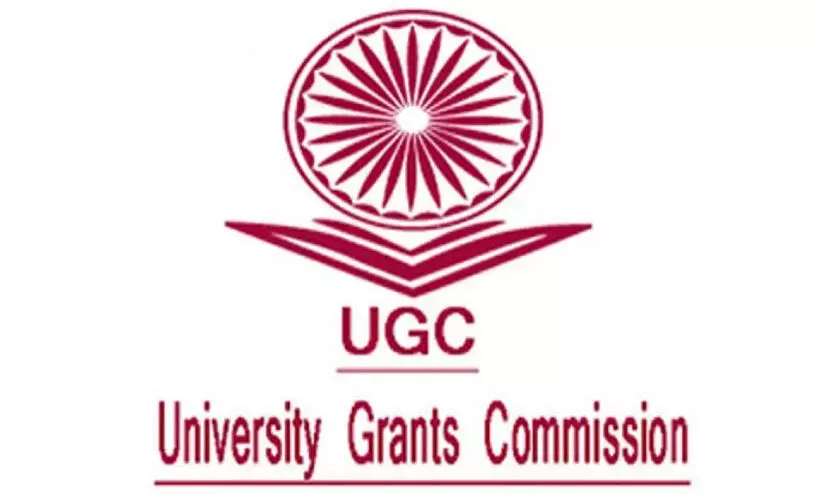
Regressive educational reform
text_fieldsPrime Minister Modi said that India will set up its own space station. Union Science and Technology Minister Jitendra Singh said that an Indian will announce 'Vikasita Bharat 2047' from the moon in 2040. These predictions were made on the occasion of National Space Day. Dreams are necessary. But what is crucial for the future is what we do in the present. Is the achievement of Shubhanshu Shukla, who stayed in a space station and returned, really ours? Reports say that India's only contribution was to secure a seat in a private spacecraft (Axis-4) by paying Rs 548 crore. What we are doing in fact is reducing investment in our science and education sectors. The UGC, which works in this field and provides study and research funds to institutions, saw a 61 per cent cut in its budget last year (2024). Despite boasting of being the fourth largest economy, we are also the country that allocates the lowest GDP share to the science and technology sector. Since 2014, when the NDA government led by Modi came to power, the government's share in the education sector has been steadily decreasing. On the one hand, while capital expenditure in the education and science sectors is being reduced, on the other hand, the government is taking a major step backwards in the content of the curricula. There is an increasing trend of imposing the Sangh Parivar perspective in history, science and languages, and distancing generations from real knowledge.
It has been pointed out that many of the proposals in the draft curriculum framework released by the UGC are incompatible with secularism. Kerala Higher Education Minister R Bindu is right in saying that it is regressive, unscientific and imposes the Hindutva ideology of the Sangh Parivar on students. The changes made in the school-level curriculum to hide the violent politics of the RSS from Indian history and to obscure the merits of the Mughal rule have also been noted. There is no doubt that all this is spreading Hindutva ideology contrary to truth and is harmful to secularism. However, it is not just any communities or the secular culture of the country that will suffer the consequences of these counterproductive reforms. The future generation, which includes all sections, is going to grow up with the false belief that myths and legends are science. The future generation of India, which should go ahead of or along with the world when it sets out to explore the horizons of the universe, should not have to buy a ‘paid seat’ in a private vehicle. Anyone can believe that ancient India had plastic surgery by referring to Ganesha (Prime Minister Modi, 2014), that modern astronomy is nothing compared to Indian astrology (Ramesh Pokhriyal Nishank, BJP MP), and that ancient India had its own satellites and the internet (former Tripura Chief Minister Biplab Dev). However, instilling such beliefs in students stunts their growth.
Scientific temper is a value emphasised by the Constitution, like secularism. When the BJP-led government tries to use constitutional institutions in the country to destroy the scientific temper and foster racial narrow-mindedness, it needs to be opposed. The regressive and anti-scientific interference of the Union government in universities and other educational institutions through governors, institutions like UGC and NCERT, does not bode well for the future of the country. The country of Brahmagupta, who gave the world the concept of zero in the modern numerical system, and Aryabhata, who made crucial contributions to astronomy, should not be reduced to the narrow-mindedness of the ruling class. On National Space Day, as we seek the “horizon beyond galaxies,” our minds should expand; not shrink. Education should be forward-looking, not regressive. The study of science should encompass all knowledge, not be a mere tool for hate propaganda.









